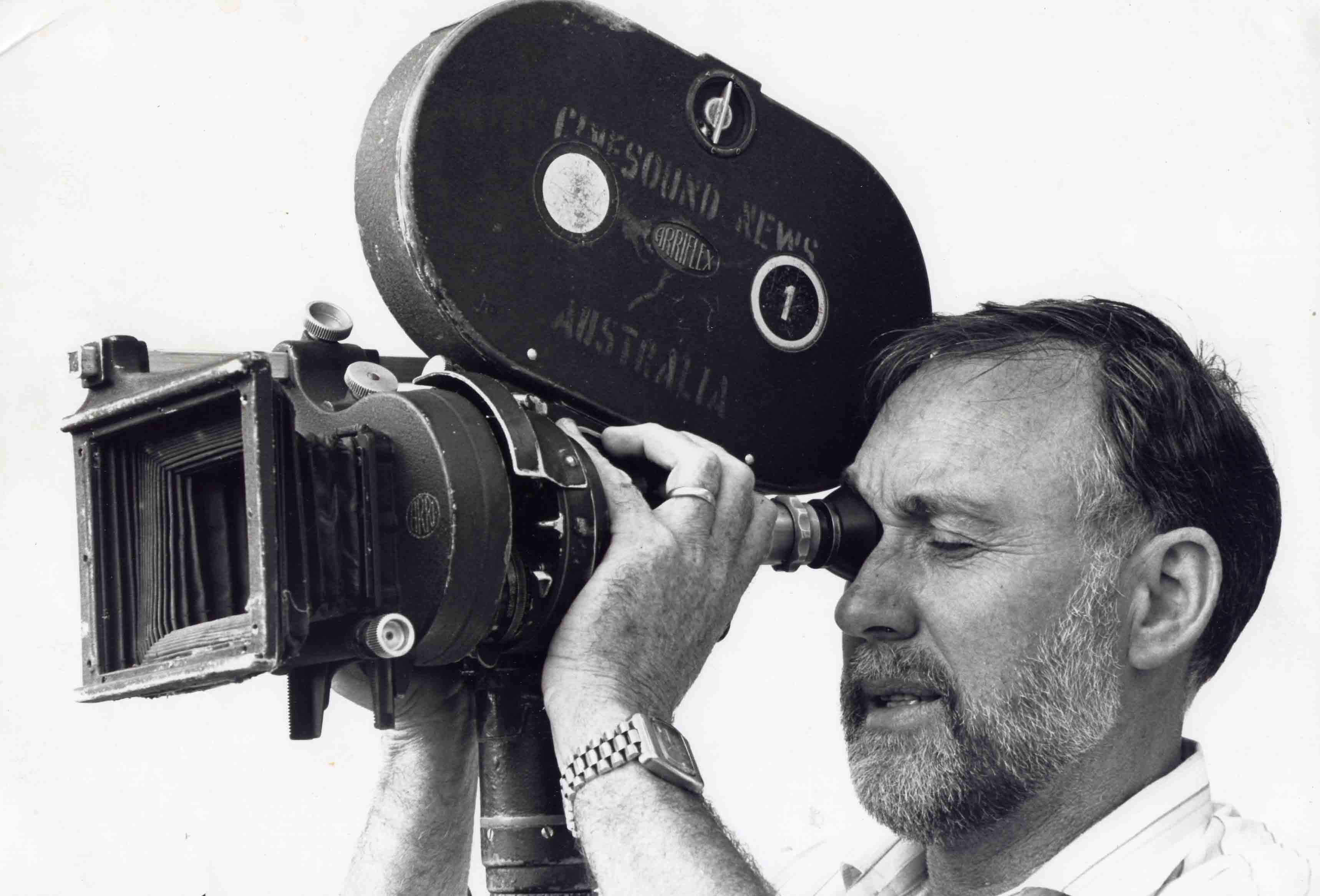With New Guinea and King Charles in the news lately, Perth man Daryl Binning can reflect on times when both featured in his life. The renowned cinematographer was recently awarded an Australia Day honour with the Order of Australia Medal (OAM) for his services to the film industry.
“I was a bit taken aback to receive the news,” a suitably modest Darryl said. “My family is quite chuffed and I only wish my late wife Wilma was here to see it.”
Daryl, of Bullcreek, will receive his award at Government House in May. Born in Fremantle in 1939, he remembers as a child sleeping on the back veranda of his home in Bicton and hearing noises and music in the summer evening’s breeze, eventually realising it was from the outdoor picture show, the Mayfair Theatre.
“The first movie I saw was Bambi. I was in a deckchair crying but so were half the other kids when Bambi’s mother got shot. The movie made a big impact on me. Always inquisitive, I noticed this light coming out of the back wall and wanted to find out what caused it.
“While at primary school I would visit the theatre of Saturday mornings and do odd jobs. The manager Stan Barrett, later gave me a torch to direct people to their seats and, eventually, I graduated to the projection room.”

At high school, Daryl obtained his first 8mm movie camera and started making his own films. After completing his electrical apprenticeship while also making ambitious home movies, he was engaged by the US Navy to document the research team seeking a suitable site for a new VLF station, eventually built at Northwest Cape. This camera, and others including his 35mm Movietone News camera, are now in the WA Museum collection.
After learning to fly, Daryl went to Port Moresby in 1963 to establish Papua New Guinea’s first government film unit. During his spare time, he began filming stories for Darcy Farrell, news editor at TVW7 in Perth, and later for other capital city stations and overseas TV news agencies.
After accepting a position in Sydney with ATN7, he returned to Perth for his wedding and then, with Wilma as his new bride, relocated to Sydney to cover the Beatles tour and the Vietnam protests. Later, they returned to New Guinea, establishing the country’s first film, production business, Films New Guinea.
Daryl says one of the highlights of his working life as a cinematographer was working in New Guinea in the turbulent times leading up to independence.

Returning to Perth in 1967, he established the WA branch of the Australian Cinematographers Society. It granted him accreditation in 1972, then in 2004, inducted him into the ACS Hall of Fame. With his family in 1971, he took over from Peter and Rose Thomson and ran Walt Disney films during the school holidays in the Fremantle Town Hall for the next 13 years.
In 1971 he was secretly whisked away to the Northwest to cover the successful testing of the first gas and condensate flow on the Northwest Shelf before the strike was made public, colour film which he recently had digitised with Woodside.
In 2017, the Society of Australian Cinema Pioneers honoured Daryl as the WA Cinema Pioneer of the Year. He also established the Australian Museum of Motion Picture and Television in 2004, although he is no longer associated with it.
After Wilma passed away in 2015, Daryl published a book, Nitrate
Nomads, which covered the story of the pioneering travelling picture showmen and women in the South West of WA in the silent movie days.
This month he has an appointment to meet the director of the Australia War Memorial to discuss his project seeking to have the Kokoda Trail renamed, as promoted in its galleries, to the Kokoda Track, a term originally used by our Diggers and more acceptable to Australians.
Daryl is also extremely busy preserving historical footage in his possession. He laments the loss of much material which has disintegrated over time.
“I have so much historical stuff including some footage of a young King Charles in Port Moresby in 1966 and his uncle Lord Louis Mountbatten inspecting the Pacific Island Regiment which are among the films I will be discussing with the National Film and Sound Archive while in Canberra,” he said.
































